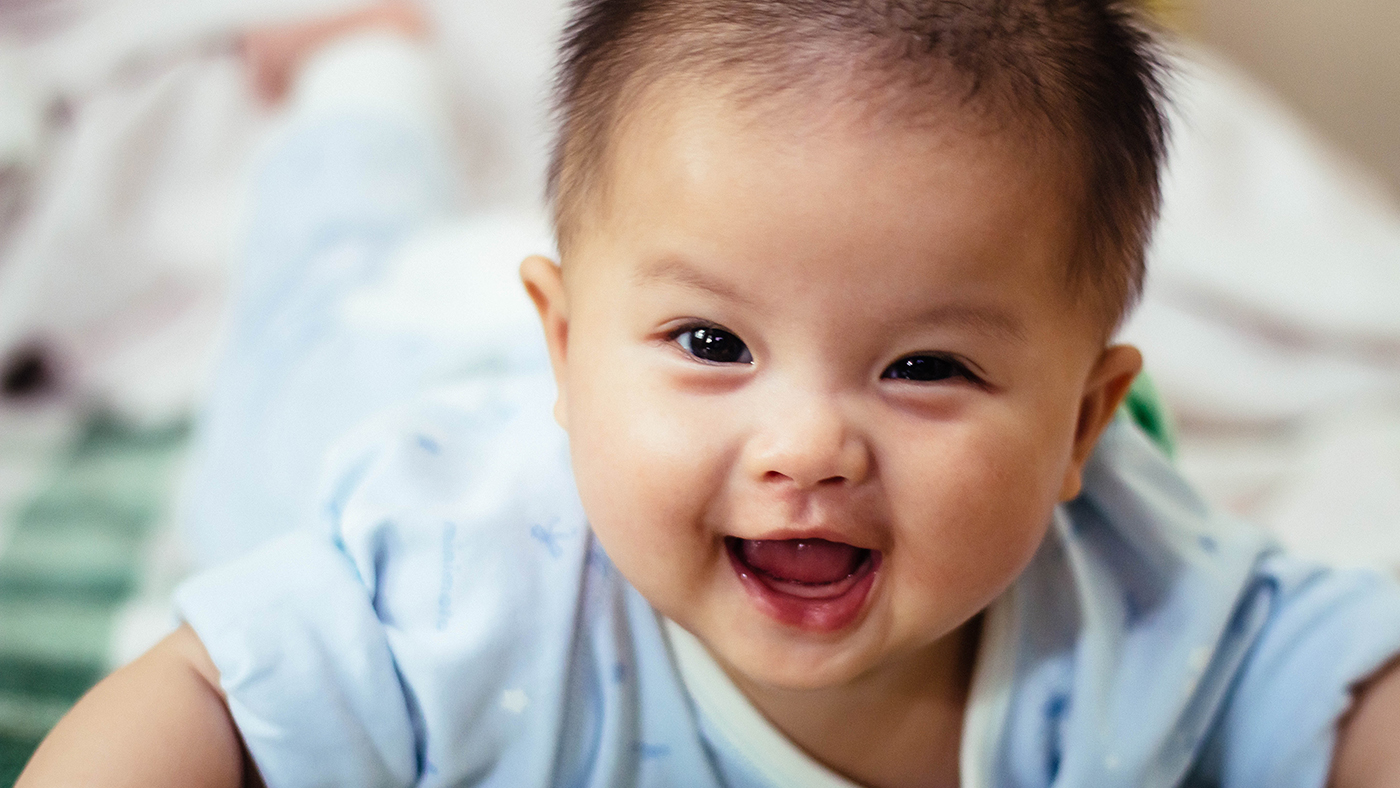Your baby's strength and control

Many of your baby's early movements are the result of primitive reflexes which result in movement in response to stimuli. Now, your baby will be starting to show more control of their movements and you will notice their movements are starting to look smoother.
Body control, movements and coordination
You might have noticed that your baby is making more movements when they play; they might be attempting to roll or lift their head for longer periods. They have also developed strength and control of their muscles.[1] Your baby’s movements will be controlled now, rather than moving as a result reflex responses to stimuli.
Proprioception and movement
Your baby’s movements help them to develop strength and control of their muscles and their awareness of their body. When your baby kicks their legs and moves their arms, they will receive signals from their joints and muscles that help them to develop their understanding of their body. As they move, they will sometimes touch objects around them and then will receive signals from receptors linked to their sense of touch. Connections will be made in your baby’s brain between areas linked to movement and senses – these connections will support your baby in understanding where their body begins and ends.[2]
Your baby will also develop their awareness of their body when you hold or touch them as they link the sensation of being touched with different parts of their body. This awareness will help them to reach for objects, and, as they develop further awareness, to control the force that they use to hold or touch an object.
Reaching and grasping
Your baby will continue to explore their movements and as their control, strength and body awareness develops they will move in more purposeful ways. For example, they will reach for and grasp objects, and turn their head when they hear a sound.
References:
[1] HealthLink. (2021). Sensory and Motor Development, Ages 1 to 12 Months. Available: https://www.healthlinkbc.ca/health-topics/ue5465.
[2] Addyman, C (2020) The laughing baby: The extraordinary science behind what makes babies happy. London: Unbound.